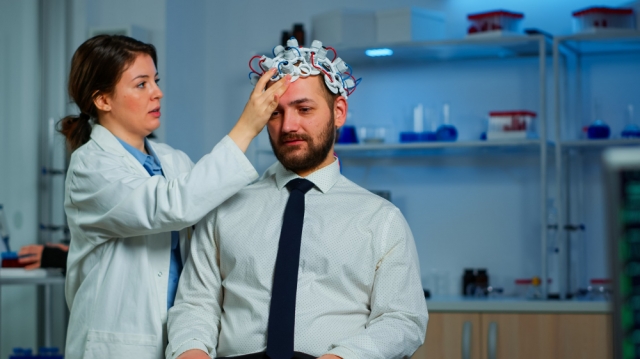Traumatic brain injuries (TBIs) are severe medical conditions that can have long-lasting effects on an individual's physical, cognitive, and emotional well-being. While some symptoms of a TBI may be immediately apparent, others can be subtle and develop over time. Recognizing the signs early on is crucial for seeking timely medical attention and preventing further complications. Ignoring these symptoms can lead to worsening conditions and even life-threatening consequences.
Understanding the key symptoms of traumatic brain injury is essential for knowing when to seek medical attention and how brain injury lawyers can assist in cases where someone else's negligence caused the injury.
1. Persistent Headaches
Headaches are a common symptom following a head injury, but if they persist or worsen over time, they could indicate a more serious underlying issue, such as a TBI. These headaches may be accompanied by other symptoms like nausea, dizziness, or sensitivity to light and sound, which are also warning signs of brain injury.
Ignoring persistent headaches can lead to severe complications, including increased intracranial pressure or even a hemorrhage. It's essential to seek medical evaluation if headaches continue beyond a few days after a head injury, as early intervention can prevent the condition from deteriorating.
2. Memory Problems and Cognitive Difficulties
Memory loss and cognitive impairments are significant indicators of a TBI. Individuals may experience difficulty recalling recent events, trouble concentrating, or challenges with problem-solving and decision-making. These cognitive issues can interfere with daily activities, work, and personal relationships.
If you or someone you know is struggling with memory or cognitive function following a head injury, it's important to consult a healthcare professional immediately. Early diagnosis and treatment can help manage these symptoms and improve recovery outcomes.
3. Emotional and Behavioral Changes
The effects of a traumatic brain injury (TBI) often extend beyond physical symptoms and can manifest as emotional and behavioral changes. These changes can include sudden shifts in mood, increased irritability, heightened anxiety, persistent feelings of sadness or depression, and impulsive behavior. In some cases, individuals may undergo noticeable alterations in their personality, which can be concerning for those around them.
It's important to recognize that these symptoms can be distressing for both the individual experiencing them and their loved ones. If left untreated, they may exacerbate over time. Seeking support from a mental health professional, in addition to medical care, is crucial for addressing these changes and improving overall well-being.
4. Sensory Issues: Vision and Hearing Problems
Head injuries can have a significant impact on the sensory systems, potentially resulting in various vision and hearing issues. Some common visual symptoms include blurred or double vision, while hearing problems may manifest as ringing in the ears (tinnitus) or partial loss of sight or hearing. These sensory impairments can greatly disrupt an individual's day-to-day activities and may serve as indicators of specific areas of brain damage.
It's crucial not to overlook these sensory issues, as doing so could result in permanent damage or the exacerbation of symptoms. If you observe any changes in your vision or hearing after sustaining a head injury, it's imperative to promptly seek medical attention to mitigate the risk of further complications.
5. Sleep Disturbances
Sleep disturbances are a common symptom of TBI and can manifest as insomnia, excessive sleepiness, or irregular sleep patterns. These disturbances can exacerbate other symptoms, such as fatigue, irritability, and cognitive difficulties, creating a cycle that hinders recovery.
Addressing sleep issues is vital for overall health and recovery from a TBI. A healthcare provider can help diagnose and treat sleep disturbances, which may involve a combination of medication, therapy, and lifestyle changes.
6. Dizziness and Balance Problems
After experiencing a traumatic brain injury (TBI), individuals may encounter difficulties with dizziness and balance, which can heighten the likelihood of falls and further harm. These symptoms often stem from harm to the brain regions responsible for regulating movement and coordination, leading to sensations of instability or lightheadedness.
If dizziness or balance issues continue following a head injury, it is essential to seek medical assessment promptly. Early intervention plays a vital role in effectively managing these symptoms and mitigating the risk of additional injuries resulting from falls.
7. Nausea and Vomiting
Nausea and vomiting, especially when they occur shortly after a head injury, are warning signs that should not be ignored. These symptoms may indicate increased intracranial pressure or other serious complications associated with a TBI.
Immediate medical attention is necessary if nausea or vomiting occurs after a head injury, as these symptoms can quickly escalate and lead to more severe health issues. Prompt treatment can alleviate these symptoms and prevent further damage.
8. Speech and Communication Difficulties
When an individual experiences difficulties with speech and communication, such as slurred speech, difficulty finding words, or trouble understanding others, following a traumatic brain injury (TBI), it can be a concerning and distressing experience. These symptoms may occur due to damage to specific areas of the brain responsible for language and communication. Seeking medical evaluation for yourself or someone you know who is experiencing these difficulties is crucial.
A healthcare professional can assess the extent of the speech and communication challenges and recommend appropriate treatments, which may include speech therapy and other interventions aimed at managing these symptoms and improving the individual's communication abilities. It's important to seek help to address these challenges and support the individual's recovery following a TBI.
Protecting Your Health and Legal Rights
Recognizing the symptoms of a traumatic brain injury is only the first step. Taking immediate action by seeking medical attention to address the injury and prevent further complications is crucial. Early diagnosis and treatment can significantly improve the chances of recovery, helping to manage symptoms and reduce the risk of long-term damage. Ignoring these symptoms not only endangers your health but can also complicate your path to recovery.
In addition to medical care, understanding your legal rights is equally important, especially if someone else's negligence caused the injury. Consulting with Traumatic Brain Injury Lawyers in California can provide guidance to pursue compensation for medical expenses, lost wages, and other related costs. Taking these steps ensures that you receive the necessary support for your health and future well-being.






